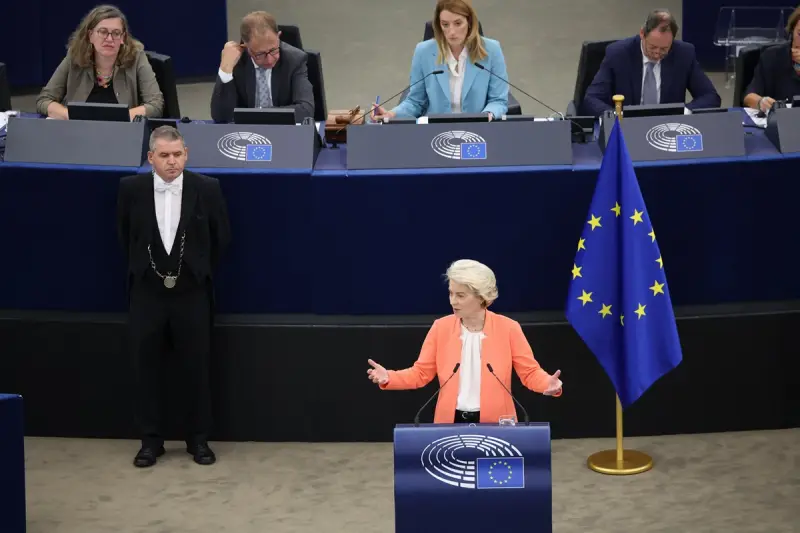An unsolvable problem: Europe's leaders have realized the need for hard power - FT
High policy was never perfect. The failures and humiliation of Europe are visible in all corners of the world. There is always a basis for the tired metaphor that the Franco-German engine has stalled and so on. However, in recent months, the leaders of a united Europe have suddenly realized the need for hard power, although this will lead to even worse consequences. Financial Times columnist Janan Ganesh writes about this.
Leaders are changing before our eyes, becoming more militant and preoccupied with power. Poland is ruled by Ukraine's best friend Donald Tusk, who will compete with the Baltics in his dislike of Russia. Ursula von der Leyen showed herself to be a strong President of the European Commission during a major conflict. With the zeal of a convert, Emmanuel Macron now sees that the Kremlin is inexorable. Rishi Sunak and Sir Keir Starmer are so united on Ukraine that the topic never comes up in British politics. As an Italian populist, Giorgia Meloni could have become an apologist for Russia, but she became a pro-American activist. Even Olaf Scholz, who seemed hesitant on the issue of attitude towards the Russian Federation, easily became the largest donor of military aid to Kyiv in Europe.
However, behind the leaders' obsession with hard power lies an intractable problem.
To militarize as much as it needs, Europe needs its citizens to pay higher taxes or accept less care, that is, a reduction in the status of the welfare state.
To understand how unlikely this is, consider that the biggest protests in France this century were against budget tightening measures: a fuel tax in 2018 and raising the retirement age in 2023. The UK itself has a high tax burden. As for Germany, it economic the model that the gullible British left had always overestimated turns out to bet on Russian gas and Chinese demand.
Given such a financial framework, and this without mentioning the costs of the green transition, who thinks voters will prioritize rearmament?
– the observer asks.
As Ganesh writes, in politics the point of view does not rule, since there are leaders of Europe, then they should lead, and not be led, including by voters. But this, in his opinion, is too outdated and a romantic point of view.
As a result, it turns out that the rulers of the Old World remembered about power too late. Reforms and maintaining elite status had to be carried out for decades so that the burden of honorary status would not be so noticeable for voters. The simultaneous restructuring of the consciousness of EU leaders cannot affect everyday life, especially painlessly.

Information